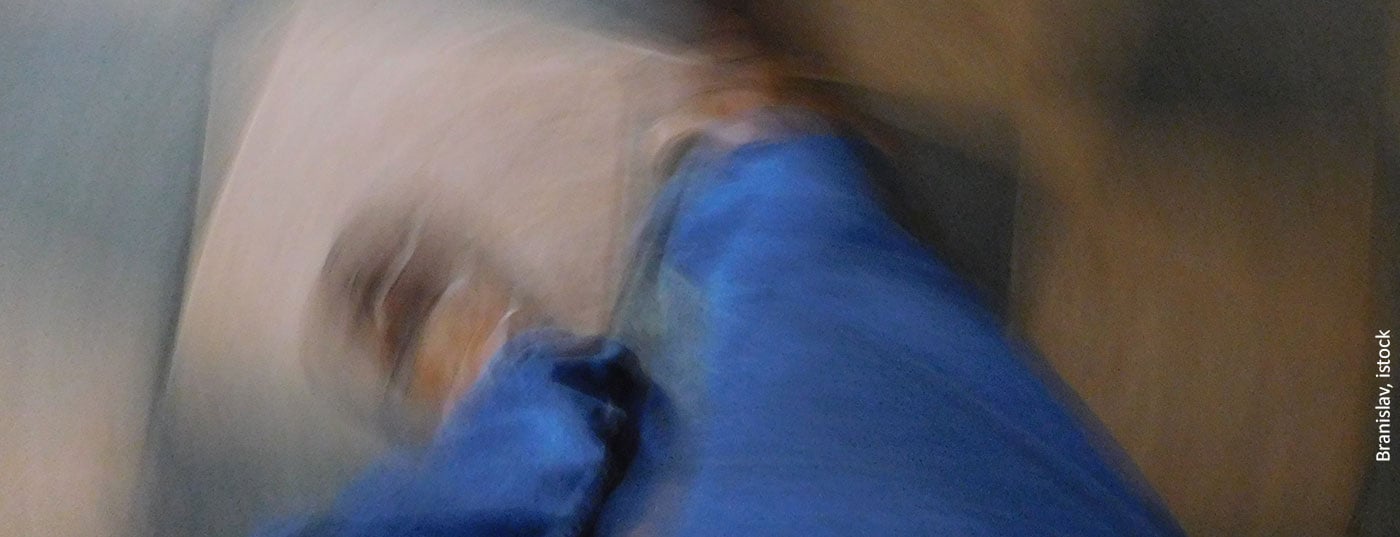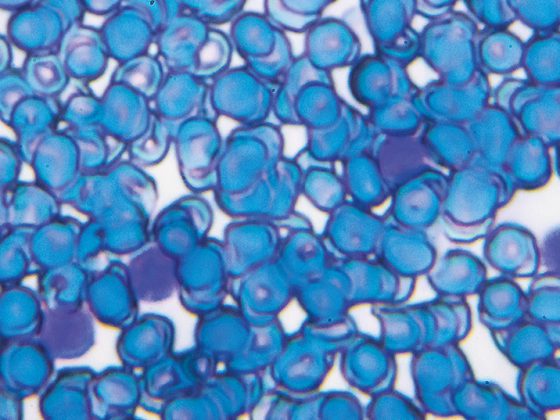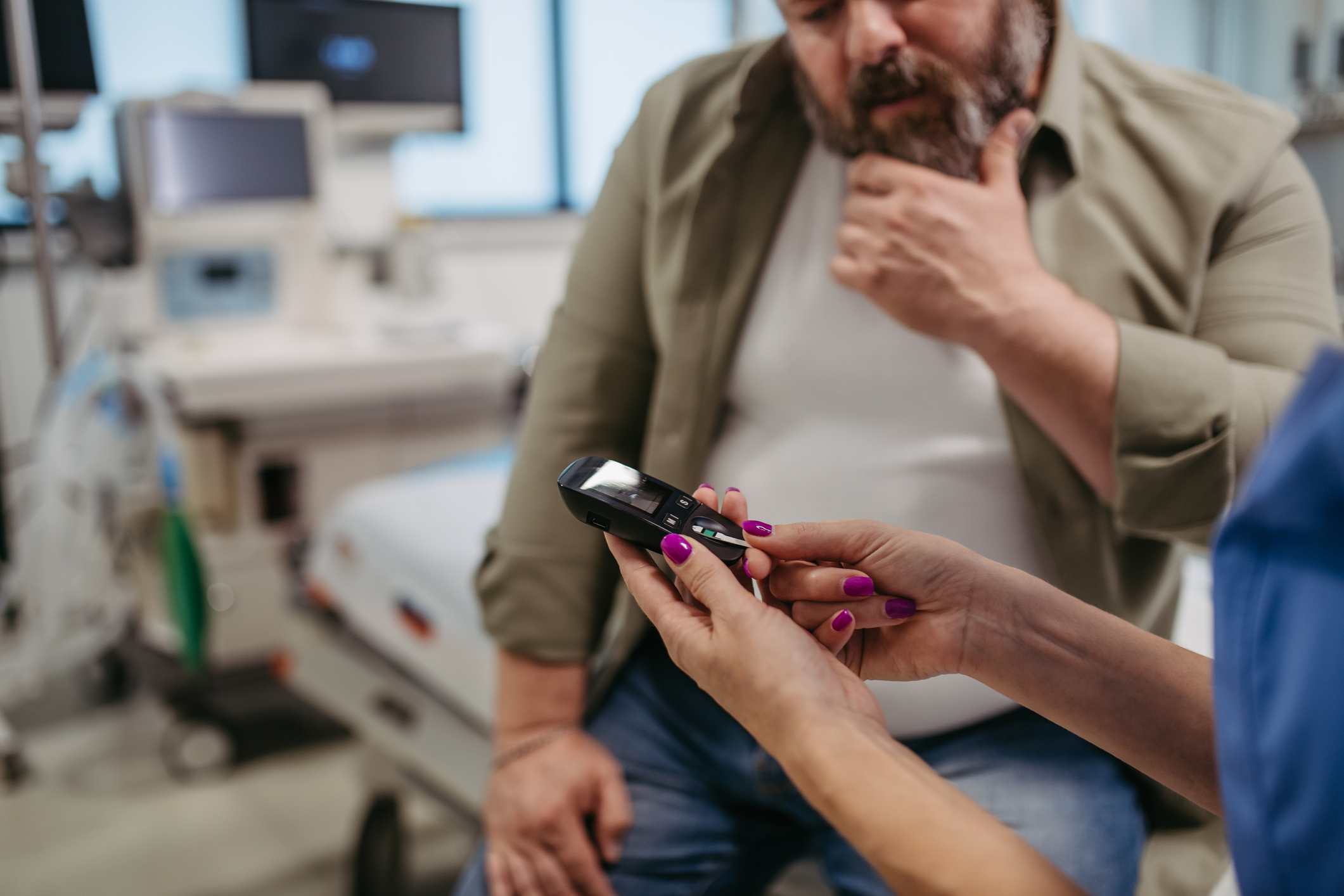Benign paroxysmal positional vertigo is a frequently idiopathic disorder. Among other things, it often occurs in old age, after trauma, in severe systemic diseases or even migraine. Repositioning therapy is the method of choice. Prophylactically, vitamin D3 substitution can help with an existing vitamin D deficiency.
Dizziness can not only have a variety of causes, but can also express itself in different ways. Therefore, it is essential to take a history of the type of vertigo, its duration and frequency, the triggering factors, and possible accompanying symptoms, explained Georgios Somakos, MD, Baselland. Especially in patients with positional vertigo, the vestibular algorithm can be well used for differential diagnosis [1]. If the vertigo is not continuous but can be triggered by movement, for example, benign paroxysmal positional vertigo (BPLS) – in addition to orthostatic hypotension – is an obvious diagnosis. The BPLS history can be corroborated by three leading symptoms:
- The vertigo can be provoked by a specific change in the position of the head,
- it is a spinning dizziness with a wave-like course that rarely lasts longer than 30 seconds,
- the triggerability of the vertigo is fluctuating. It is often most intense in the morning, but repeated change of position results in attenuation of symptoms.
BPLS is the most common form of vertigo and is caused by particles of otolith membrane falling into the posterior or horizontal archway. During rapid movement, these are then flung through the vestibular organ, leading to defective activation of the sensory cells [2]. As conflicting information regarding position and movement reaches the brain, this is perceived as dizziness. BPLS mainly affects people in older age, hypertension, hyperlipidemia and migraine or after stroke [3]. Vitamin D deficiency, osteoporosis or osteopenia, as well as viral infections or genetic causes are discussed as risk factors for occurrence.
Simple storage treatment can help
Posterior arch disease is diagnosed primarily by the Dix-Hallpike maneuver, according to the expert [4]. After a slight rotation of the head by approx. 45°, the patient is brought into a lying position with the head hyperextended. If this causes torsional nystagmus, BPLS is present. Eye movement is exhaustible after 10-45 seconds. Alternatively, the Bojrab-Calvert maneuver can be used.
The therapy can usually be performed on an outpatient basis. This is a storage maneuver, such as the Epley liberation maneuver or the Sémont maneuver. This allows the debris to be carried out of the archway. The implementation is not dangerous and very efficient. However, it can be uncomfortable for the individual. A pronounced feeling of dizziness, nausea and vomiting may be induced. The administration of an antivertiginosum may then be helpful. For most patients, three positioning maneuvers are sufficient to eliminate discomfort.
In about 10% of BPLS patients, the horizontal arcades are affected. These are diagnosed using the McClure-Pagnini maneuver. The barbecue maneuver can be used to remove the deposits. The chances of success are about 75%, Somakos reported. Side effects may include nausea, vomitus, or collapse. In 13% of cases, a recurrence forms within six months. All in all, the prognosis of the BPLS is very positive. Even without reduction therapy, symptoms resolve after approximately 39 (posterior BPLS) or 16 days (horizontal BPLS) [5].
Nevertheless, it happens that patients cannot be helped by the positioning maneuver. Then there could be centrally caused paroxysmal positional vertigo, complex BPLS involving multiple arcades, or a delayed course. In these cases, more detailed diagnostics should be performed, the expert concluded.
Congress: FomF UpDate
Literature:
- www.gesundheit.bs.ch/gesundheitsfoerderung, Diagnostic Approach to the Adult Patient with Acute Dizziness. J Emerg Med 2018; 54(4): 469-483.
- www.neurologienetz.de/fachlicheserkrankungen/schwindel/benigner-paroxsamaler-lagerungsschwindel/ (last accessed on 10.05.2022)
- www.gesundheit.gv.at/krankheiten/hno/ohrenerkrankungen/bpls (last accessed on 10.05.2022)
- Parnes L et al. Diagnosis and management of benign paroxysmal poitional vertigo (BPPV). CMAJ 2003; 169(7): 681-693.
- Von Brevern M, et al: Epidemiology of benign paroxysmal positional vertigo: a population based study. J Neurol Neurosurg Psychiatry 2007; 78(7): 710-715.
InFo NEUROLOGY & PSYCHIATRY 2022; 20(3): 39.











